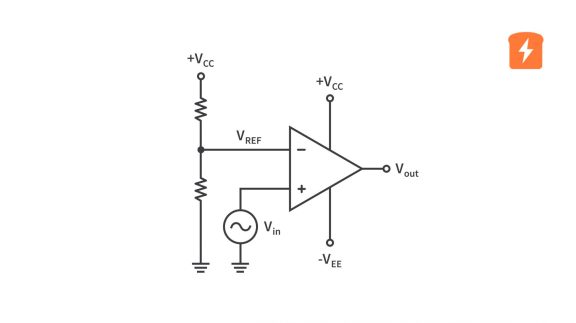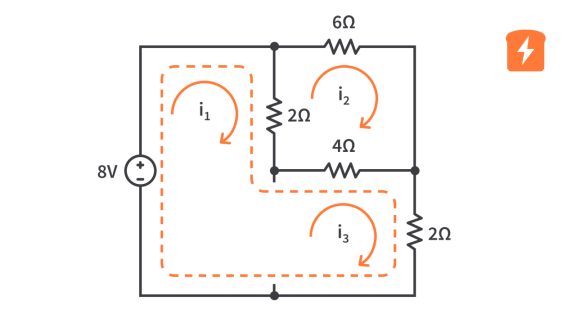All Tutorials
In this tutorial, explore the steps to create a digital and analog clock using the internal ...
In this tutorial, explore the steps to create a digital and analog clock using the internal RTC module of the RA2A1 MCU and OLED display. A great ...
In this tutorial, explore the steps to create a digital and analog clock using the internal RTC module of the RA2A1 MCU and OLED display. A great resource for beginners and ...
Using CircuitBread's tutorial, you will understand all about RL78's 12-bit interval timer. ...
Using CircuitBread's tutorial, you will understand all about RL78's 12-bit interval timer. Additionally, it empowers you with the knowledge to create ...
Using CircuitBread's tutorial, you will understand all about RL78's 12-bit interval timer. Additionally, it empowers you with the knowledge to create an exclusive millisecond ...
Understanding Capacitors just got easier with this comprehensive piece that explores their ...
Understanding Capacitors just got easier with this comprehensive piece that explores their role in DC/AC circuits and simplifies their operation in ...
Understanding Capacitors just got easier with this comprehensive piece that explores their role in DC/AC circuits and simplifies their operation in series/parallel formations.
The guide provides valuable insights into the process of porting the Arduino OLED Library to ...
The guide provides valuable insights into the process of porting the Arduino OLED Library to the Renesas RA, and offers detailed information on the ...
The guide provides valuable insights into the process of porting the Arduino OLED Library to the Renesas RA, and offers detailed information on the OLED display technology.
The article provides a walkthrough of interfacing MCU modules for a 1602-character LCD with an ...
The article provides a walkthrough of interfacing MCU modules for a 1602-character LCD with an HD44780 driver. It provides a unique perspective on ...
The article provides a walkthrough of interfacing MCU modules for a 1602-character LCD with an HD44780 driver. It provides a unique perspective on LCD programming in C.
Learn about the interesting world of Comparator Circuits; how they work and how to set them ...
Learn about the interesting world of Comparator Circuits; how they work and how to set them up, question we have all pondered on is explained in this ...
Learn about the interesting world of Comparator Circuits; how they work and how to set them up, question we have all pondered on is explained in this engaging post.
A tutorial about how to use the 1602 Character LCD with the HD44780 driver in embedded C ...
A tutorial about how to use the 1602 Character LCD with the HD44780 driver in embedded C programming, offering a hands-on guide to creating custom ...
A tutorial about how to use the 1602 Character LCD with the HD44780 driver in embedded C programming, offering a hands-on guide to creating custom characters.
In this tutorial, learn how to efficiently connect a 1602 LCD to the Renesas RA MCU. It covers ...
In this tutorial, learn how to efficiently connect a 1602 LCD to the Renesas RA MCU. It covers everything about redirecting 'printf' function for any ...
In this tutorial, learn how to efficiently connect a 1602 LCD to the Renesas RA MCU. It covers everything about redirecting 'printf' function for any display/interface.
Part 17 of our Embedded C Programming series dive into creating a digital piano with a matrix ...
Part 17 of our Embedded C Programming series dive into creating a digital piano with a matrix keyboard using the MCC Plugin. Explore Timer1 and ECCP ...
Part 17 of our Embedded C Programming series dive into creating a digital piano with a matrix keyboard using the MCC Plugin. Explore Timer1 and ECCP modules of the PIC18F14K50 MCU ...
This piece explores the role and workings of Interrupt Functions in Renesas RL78, shedding ...
This piece explores the role and workings of Interrupt Functions in Renesas RL78, shedding light on peripheral operations and functionalities.
This piece explores the role and workings of Interrupt Functions in Renesas RL78, shedding light on peripheral operations and functionalities.
Learn to simplify complex electrical network analysis with Supermesh Analysis. An in-depth ...
Learn to simplify complex electrical network analysis with Supermesh Analysis. An in-depth exploration of mesh currents, resistors and voltage ...
Learn to simplify complex electrical network analysis with Supermesh Analysis. An in-depth exploration of mesh currents, resistors and voltage sources using Kirchhoff's laws.
This article provides a detailed guide on creating a digital piano using a matrix keyboard and ...
This article provides a detailed guide on creating a digital piano using a matrix keyboard and the PIC18F14K50 MCU in Embedded C Programming. It ...
This article provides a detailed guide on creating a digital piano using a matrix keyboard and the PIC18F14K50 MCU in Embedded C Programming. It explains the use of ECCP modules ...
Understanding the Renesas RA - 6 with in-depth explanation of touch button and PWM. Learn to ...
Understanding the Renesas RA - 6 with in-depth explanation of touch button and PWM. Learn to setup using the FSP Configurator and EK-RA2A1 evlauation ...
Understanding the Renesas RA - 6 with in-depth explanation of touch button and PWM. Learn to setup using the FSP Configurator and EK-RA2A1 evlauation board.
Explore the functionalities of the RL78/G14 General Purpose Input/Outputs (GPIOs). This ...
Explore the functionalities of the RL78/G14 General Purpose Input/Outputs (GPIOs). This insightful guide walks you through not just theory, but also ...
Explore the functionalities of the RL78/G14 General Purpose Input/Outputs (GPIOs). This insightful guide walks you through not just theory, but also practical applications of ...
Understanding how to conduct distance measurement using an Ultrasonic Sensor and Embedded C ...
Understanding how to conduct distance measurement using an Ultrasonic Sensor and Embedded C Programming. An in-depth look at HC-SR04 sensor and its ...
Understanding how to conduct distance measurement using an Ultrasonic Sensor and Embedded C Programming. An in-depth look at HC-SR04 sensor and its function with the help of MCC ...
Freshly launched content! We'll be adding more on a regular basis.
Question, comment or suggestion?












